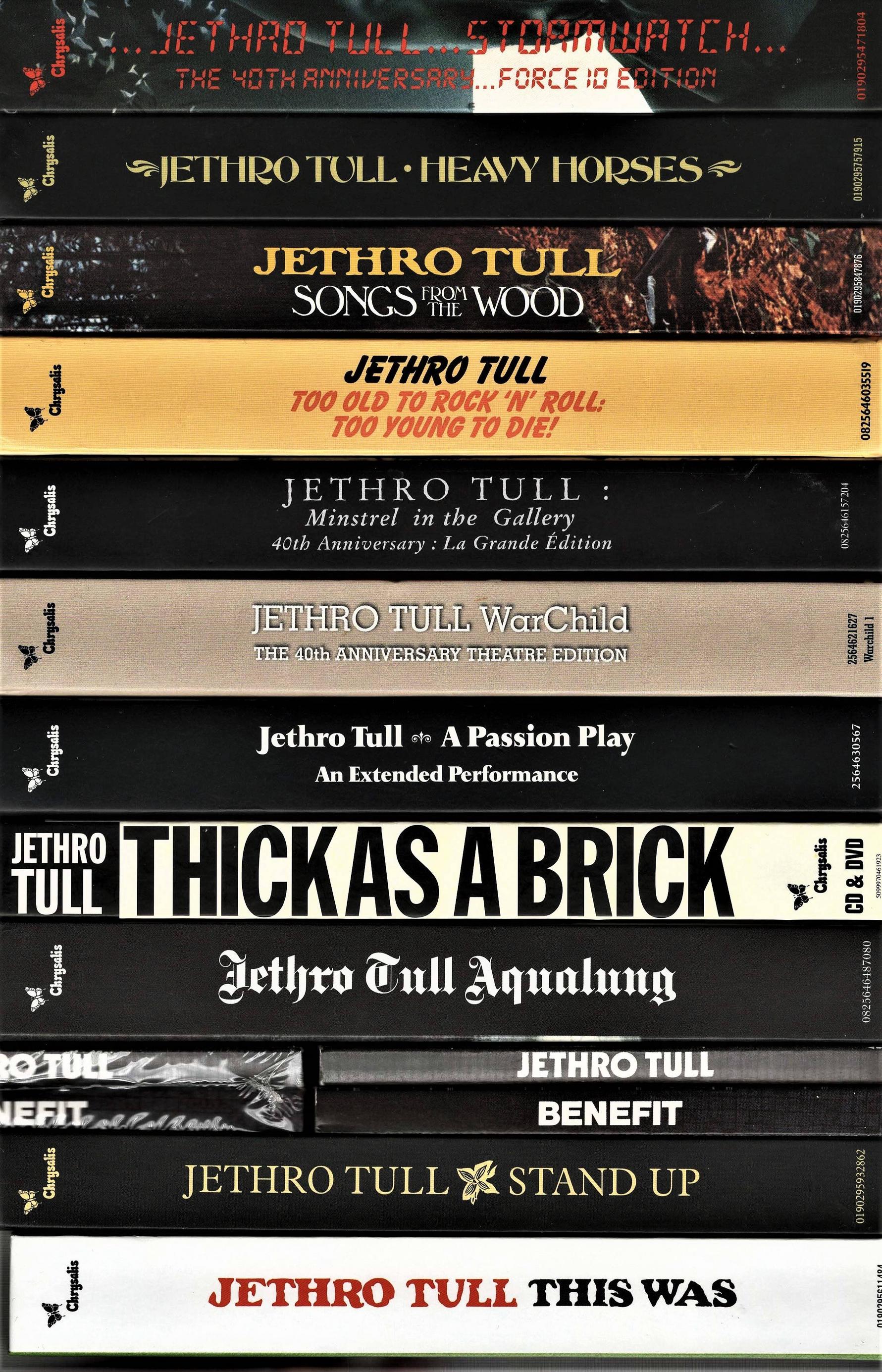When I spoke to you before about the Steven Wilson box sets, you said he (Wilson) would pretty much cover it through the 70s and that would be that. So, with that in mind, the Heavy Horses box just dropped, and the next box would be Stormwatch, which would presumably be the next and final box set. Has that changed? Do you seeing it going beyond Stormwatch and into the 80s? What are your thoughts on that?
When I last spoke to Steven Wilson about that a few weeks ago, he seemed to suggest he might do a couple more beyond that. He seemed to express some interest in doing more than he originally seemed prepared to do. Steven is very successful in his own right, particularly this year when he has a very, very full year of touring. We’ve already done another album to include among the Steve Wilson remixes apart from Heavy Horses, and they are indeed a couple that we’ve talked about doing beyond that.
But, “Steven,” as I’ve always said to him, “there comes a time when you’ve got to do your stuff. You’ve got to prioritize and not feel that you’re obligated to keep working on music” that’s possibly less relevant to him any ways because once we get into the 80s, Steven Wilson was up and running as a musician. Perhaps at that point, the music that inspired him as a child or a teenager, that music is done and dusted as far as he’s concerned. That’s the music that brought him into the world of music as a musician and a producer and all that rest of it. So I can see why he has an affinity for that. Whether it’s Jethro Tull or King Crimson or Yes or Gentle Giant, I think he’s doing one of. You can see why he’s moved to work with that material. That’s part of his founding days as a young, wanna-be musician. Once he was up and running and an active musician himself, I guess he was much more interested, as we all are, in the music we are making, rather than the revered influences that we may have had when we were pre-teen or teen-age. The attraction is obviously no going to be there in the same way.
We’ll see what he wants to do. He’s done it so many times that it’s a well-worn prospect. He’s so familiar with my work to the point that he gets the master tape and pushes up the faders. He listens to the album, looks at the stereo picture, gets the balances of things right, and then works on the EQ, cleaning up all the nasty hums and buzzes and clicks and clackers and noises that are on the master tapes that we couldn’t do back in the days on non-automation and in the analog domain. Digitally, you can be quite radical in the way that you clean things up and get a much more transparent sound by what you’re listening to. You adjust the music without all the hisses and buzzes and other extraneous noises that litter the tracks.
Back then, the only way you could clean up the space between vocal lines or between different instrumental passages was to put your machine in “record” and delete that section of not-quite silence, which is a very scary and dangerous thing to do. You’ve almost got to get it wrong by a fraction, and you’ve wiped the master. It was kind of tricky to do the thing that became more possible with automated, analog mixing consoles. And then, of course, in the digital era, it became something that’s really quite easy to do because you can just see the wave form on your computer screen and you can just get rid of it. Or if you don’t want to delete it, you can put in some information just to reduce the output of that track at that point to zero. So it’s essentially digital silence until you want to hear it again.
That’s what Steven knows how to do. He’s very familiar with my work, and I guess he finds it a lot easier working my material now then when he first started, I think with the Aqualung album, a good many years ago.





 if you buy it from the Shed!
if you buy it from the Shed!


